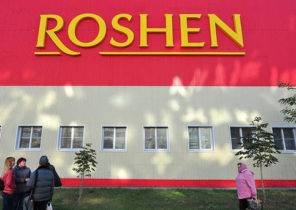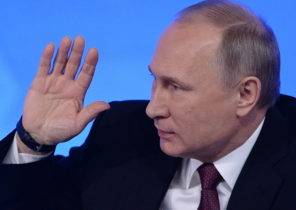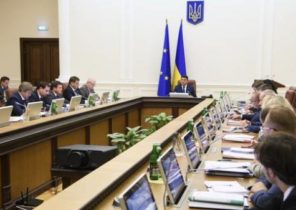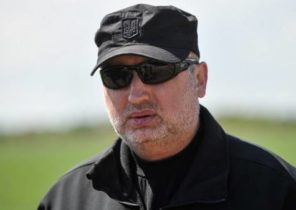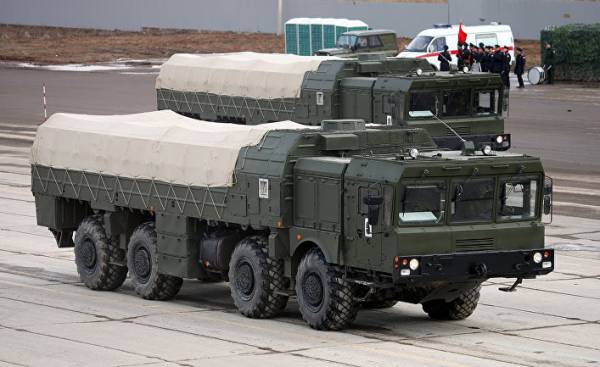
Last fall, the Russian military deployed in the Kaliningrad region battery missile systems of near radius of action “Iskander” is able to be equipped with nuclear weapons. Kaliningrad oblast — a Russian enclave located between Poland and Lithuania, and its area is 15.5 thousand square kilometers. This step raises a disturbing question: does Moscow of a possible limited nuclear conflict in Europe?
This was supposed to cause terror. Conflict with the use of tactical nuclear weapons could easily escalate into an exchange of strategic nuclear strikes — which not only will be largely destroyed Russia, but also caused large-scale damage to the United States and Western Europe. What can be done to prevent this?
Russia is increasingly rattling the sabre and threatening. Published in January 2016 Annual report, NATO stressed that the Russian armed forces conduct exercises, including “simulating a nuclear attack on NATO allies and their partners.” As noted by a former employee of the Ministry of defence mark Schneider (Mark B. Schneider) in his article, published in the latest issue published by the organization, “the naval Institute of the United States,” journal Proceedings, Moscow, apparently, has adopted a strategy of “escalation — de-escalation,” while the potential for conflict with the use of conventional weapons with ever-increasing threats to use limited nuclear strike.
Adopted last year by the United States and NATO allies the decision to place missile defense systems in the South of Romania has angered Moscow. “For us it is an immediate threat. They approach the line of fire, said Admiral Vladimir Komoyedov (former) Chairman of the Russian State Duma on defense and the former commander of the Russian black sea fleet. The second centre placing of anti-missile systems currently only being created in Poland, and to function it will begin in 2018.
Russians do not believe the claims of the United States that the missile defense system of NATO are aimed at protecting Europe from attack by such rogue States as Iran. “Russia is doing everything necessary to protect themselves in response to the approach of NATO to its borders,” said Dmitry Peskov, press Secretary of President Vladimir Putin, responding to criticism of the West over the deployment of missile systems in the Kaliningrad region. “The position of Romania and its leadership position, turning the country into an Outpost for us is the obvious threat,” — said last month Alexander Botan-Kharchenko, a senior official of the Russian Ministry of foreign Affairs.
Ambitions of Mr. Putin clearly aimed at Russia to restore its influence in its former satellites in Eastern Europe, and he is not averse to use as leverage its nuclear Arsenal. “The Russian side according to unofficial sources, has made several threats and warned that in case of further resistance, the Russians are willing to use against us tactical nuclear weapons,” — said in September 2014, six months after the capture of the Crimea, the then Minister of defence Valery geletey.
Who will be the next victim of Russian aggression? NATO is the only barrier preventing further Russian intervention in Ukraine and main obstacle to the realization of the intentions of Mr. Putin in relation to the Baltic States of Estonia, Latvia and Lithuania. The best response of the Alliance to an aggressive nuclear rhetoric, Russia is a strong commitment to the principle of collective self-defence contained in Article 5 of the NATO Treaty.
Earlier this year, a few dozen soldiers of the U.S. special operations arrived in the Baltic States. Their stated mission is to gather intelligence and also to assist in the preparation of a very small armed forces of these countries. Their supposed mission is to remind the Russian that in the event of an attack on those of NATO, Russia will be at war with the United States.
With the apparent escalation in the use of tactical nuclear weapons in Europe are essential measures to prevent hostilities arising from a wrong assessment of the situation. “We need to establish high-quality communication with the Russian, — said last summer at the Atlantic Council and former commander of the NATO forces in Europe Philip Breedlove. — At first, this may fail and cause disappointment… but Russia understands what it means power, strength and unity.”
Recently, Mr. Putin informed the participants of the meeting of the Board of the Ministry of defence that he intends to strengthen the strategic missile forces. It is quite possible that it made the former Soviet leader Mikhail Gorbachev to write in Time magazine that “statements by political and military leaders have become more militant, and the military doctrine is more dangerous… it looks like the world is preparing for war.”
The capacity of Russia’s weapons has to be met by a comparable increase of American nuclear and conventional weapons, and we need to get Mr. Putin to understand that Moscow could not win the arms race with Washington and that the United States and its NATO allies can’t live with the threat of conflict with the use of tactical nuclear weapons in Europe.
Mr. stirman the former program Director for Russian studies at Georgetown University. During the reign of President Nixon, Ford, Reagan and George Bush senior he was a member of the staff of the national security Council. He is also the author of the book “the American adventure — the Path to the White house from early aviation through three wars” (An American Adventure From Early Aviation Through Three Wars to the White House).
